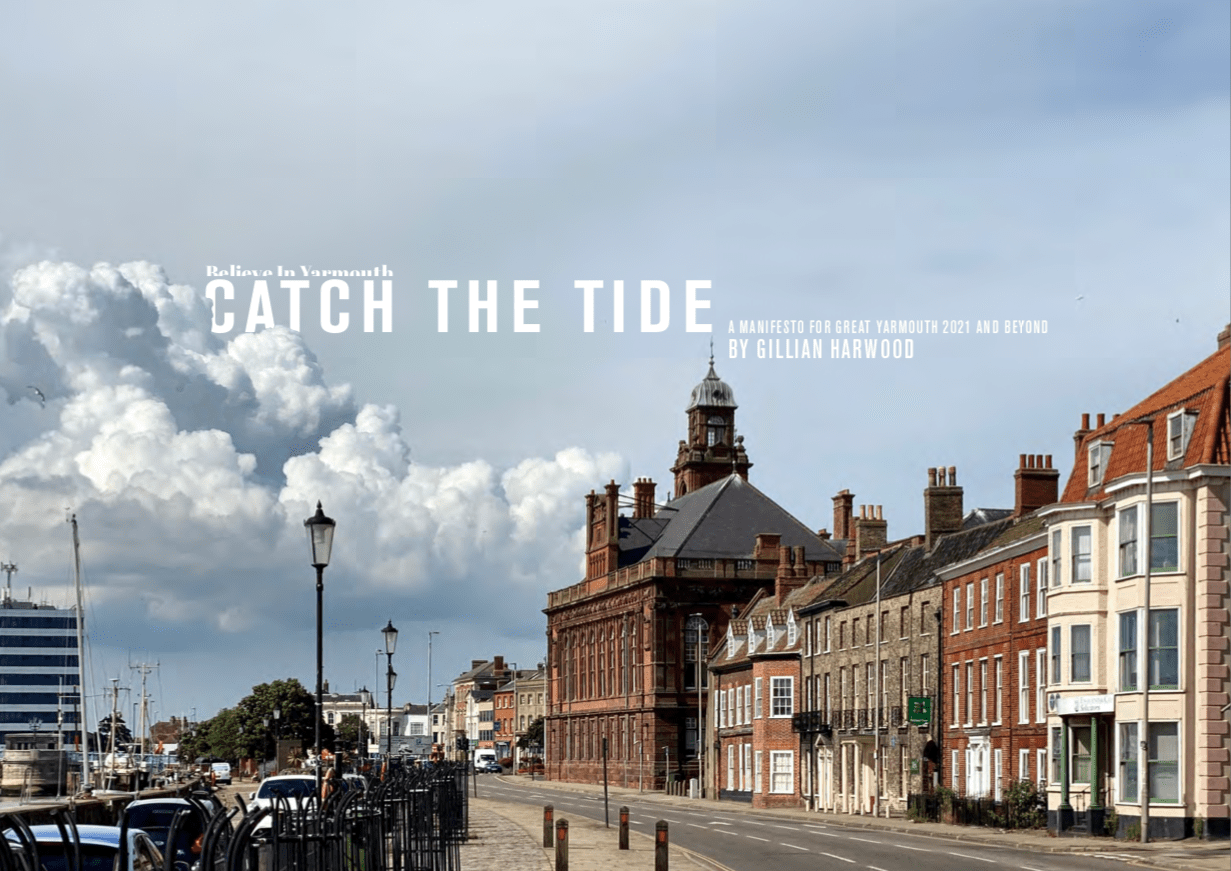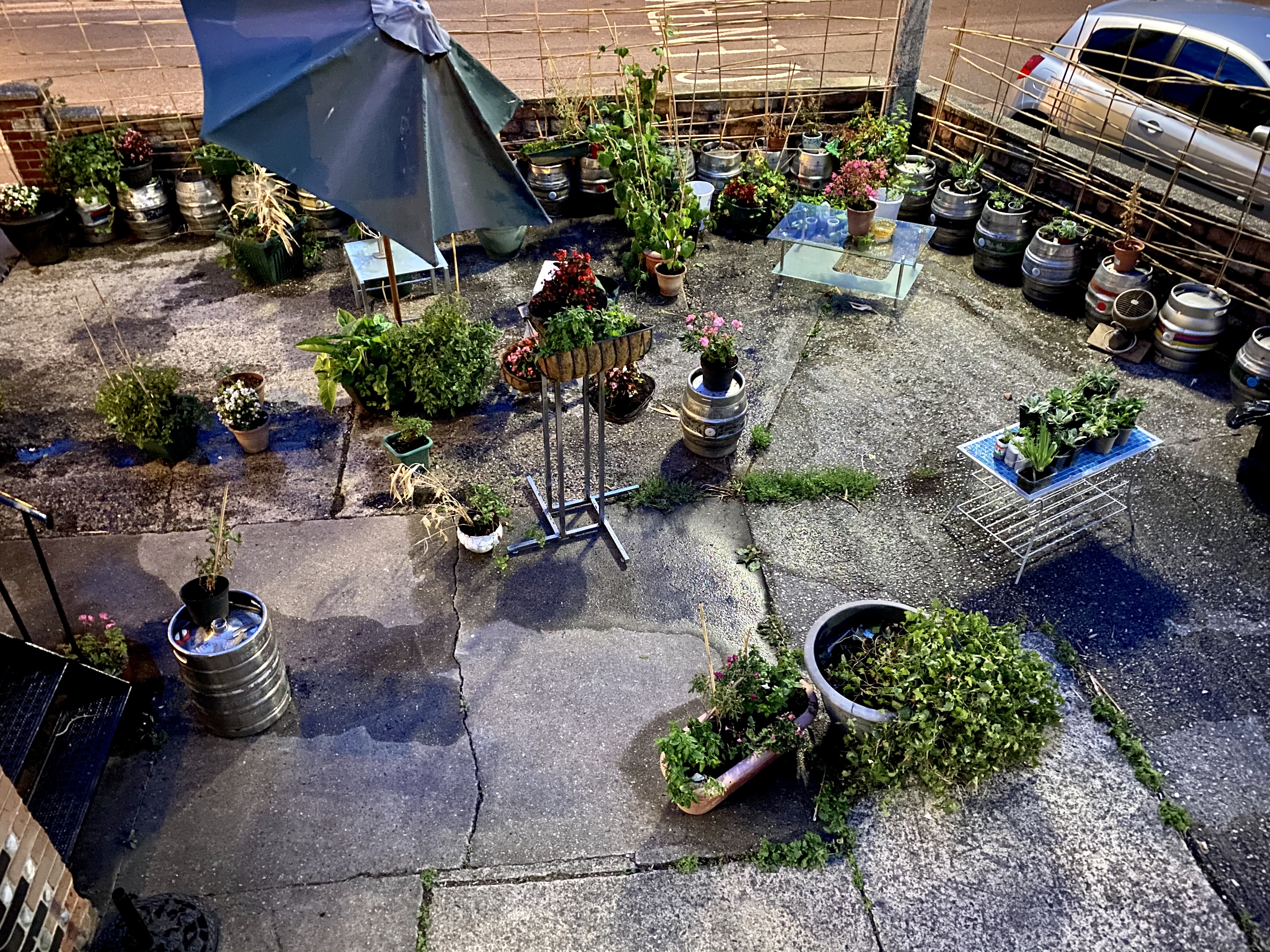Photo gallery of the emerging Paget Garden. The garden at the pub had pots of neglected plants. Nurturing them back to health became an idea for a new app game. A fun introduction to AI and other algorithmic technologies.



Introducing the Paget Garden
The Paget garden has been inspired by a book by a local man called James Paget, whose name locally is more associated with the nearby James Paget University NHS Hospitals. Along with his brothers, James Paget listed all the Fauna, Flora and Birds of Great Yarmouth and published as a book in 1834 titled, Sketch Of The Natural History Of Yarmouth And Its’ Neighbourhood.
Although I have not yet seen a physical copy of this book, which I first discovered mentioned in Sir James Paget: Surgeon Extraordinary and His Legacies, the pages I have seen were enough to inspire the garden and the forthcoming game.
Dead Plant Resurrection
Before acquiring the keys to the St John’s Head pub to develop into Portal B in February 2020, I noted a large number of seemingly dead plants on the patio.



On seeing these plants, I recalled an old colleague and French Chef, Ginni Debert from my Margate 2011 intervention, who demonstrated how, with water, love and some attention, most plants can recover to their former glory. As a metaphor, this could also be applied to towns’ like Great Yarmouth where, to an outside eye, the town can appear almost lifeless.
Preparing
So in winter 2020 I began my project, with only a very vague idea of a plan. My first task was to cut back the bamboo in the garden where I live and put aside to dry.






Creating the Lab
Once St John’s Head was secured and I had the keys I began the task of transporting the plants back to my home and creating two lab spaces, at the front and rear of the house, to try and recover the plants. I also bought some tomato plant saps, took some rose cuttings from a neighbour’s garden and a friend provided some beans, courgettes and other seeds.
I have little active experience of gardening so it was as much guessing, sensing and remembering things from what others have said, particularly Ginni’s tips. The only purchase beyond the tomato plants I made was compost from the local Moulton nursery in the nearby town of Acle.









Lockdown Development
During lockdown the lab took more of my time and the plants slowly started to return to life. Neighbours were not convinced by my endeavours, however slowly and steadily they watch the front lab transform over April and May 2020.















Compost
In the rear lab area I created a large compost heap from the discarded plant waste, newspaper and food using compostable food bags that the breakfast cereals are packaged in. The hope is that this will be ready mid-autumn to plant a winter crop. This also solved a problem of not being able to take the waste to the local recycling tip, which was closed due to lockdown.









At time of writing, 10 Sept 2020, the compost heap is now less than a third as high and some fine compost is beginning to appear at the base of the heap.
Back of Asda
As well as the Paget writing, the real motivator is the area of flat marshlands just outside Great Yarmouth, directly behind the Asda supermarket. An incredibly beautiful, wild and managed area stretching miles and home to a huge array of plants, fauna, migrating as well as local birds, fish and insects. The constantly changing weather and light makes the back of Asda a magical place.










Summer Bloom
As any beginner to gardening will exclaim, there is real excitement in spring when the first shoots appear and immense pleasure when plants begin to bloom. By June 2020, as lockdown restrictions were slowly lifting and more local people began going about their business, the lab had turned into a proper garden – although all in pots – and people began to notice. Neighbours fell in love with the space, it was a beautiful place to sit despite the increased traffic noise.


















Testing Idea
I started testing ideas, like building a bamboo fence and whether it would stay upright in the strong Great Yarmouth winds, find out whether barrels could be converted into plant holders and how to construct bean climbers.



On the Move
With licensed premises again allowed to open, time came to move some of the plants to Portal B, their new home and build the bamboo fence around the car park using the old beer barrels.





















Plant Exchange
Inside Portal B there will be a plant exchange to encourage people to grow their own. The first plants in the exchange all come from a single mother money plant, the only plant in the pub that was still thriving when the keys were handed over.



First Crop and More Plants
The first sign of a crop began to show in July and it slowly expanded over August. Colleague Gillian brought some succulents to add to the money plants, and the beans and tomato plants in particular grew fast. Some of these were in old plastic milk bottles to demonstrate that it is possible to use any container. There has been the odd problem, like almost hurricane winds blowing over many of the containers.
















Bountiful Harvest
As with the lab, neighbours to Portal B began to see this strange garden emerging in what was previously just a concrete empty car park space behind an old pub. As August pushed towards September 2020 a bountiful crop began to appear and neighbours became increasingly interested in what was/is growing. The harvest of beans, tomatoes and cucumbers are an ongoing feast and allows for sharing with many who live locally. The courgettes and chilli peppers have not been so bountiful as would be hoped and the snails and slugs feasted on the lettuces and onions all summer. No chemical sprays or pellets are used.












Neighbours
The garden has already proved a great conversation starter and breaks down barriers reasonably quickly. I have had a few opportunities to show some of the plant apps that I want to use to introduce AI and Machine Learning (ML) in particular. On the Patience, Perseverance and Hooks blog post I outline the importance of these slow build ups that allow people to engage at their own pace. Food and nature are great as both are imperative to our survival.
Paget Game
Over autumn 2020 and winter 2021, the intention is to develop a game to accompany the garden. The game blog post will follow soon, in the meantime, more on why this is called the Paget Garden.
John M
This post should be read in conjunction with PATIENCE, PERSEVERANCE AND HOOKS, JAMES PAGET AND PAGET GAME (to follow).
References
Sturzaker, Hugh. (2013), Sir James Paget : Surgeon Extraordinary and His Legacies, Great Britain
text


























